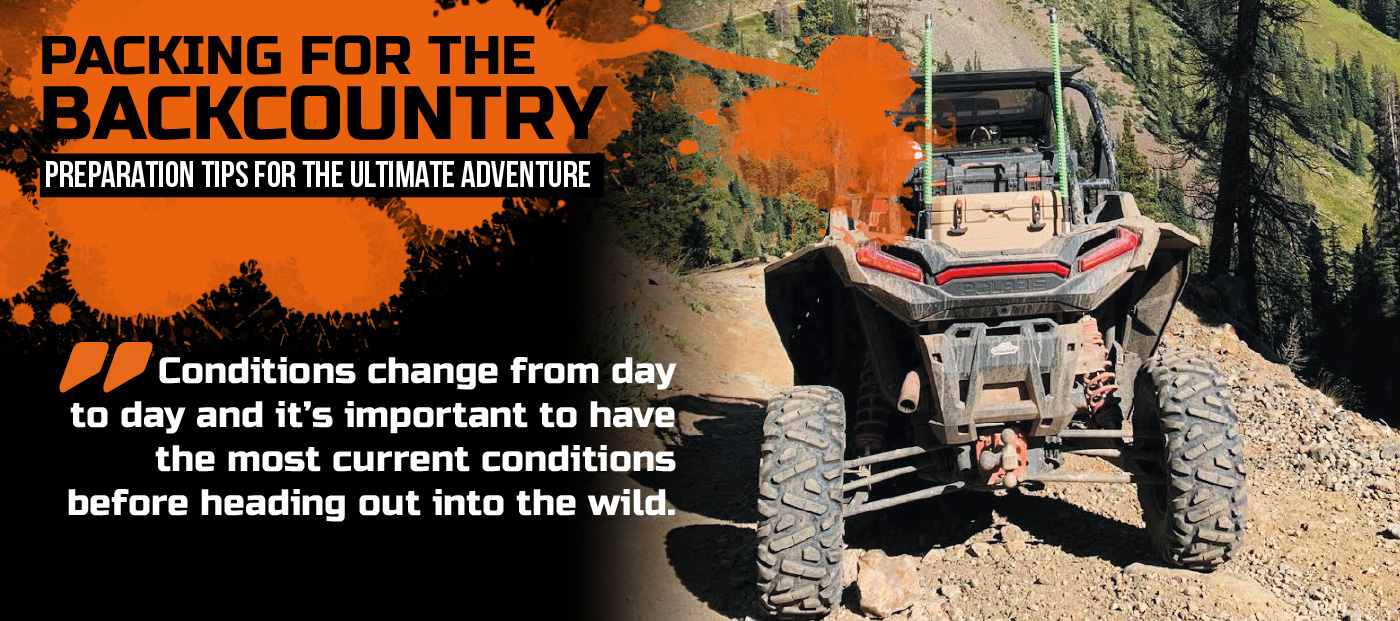Focusing on trip preparation may be the most important part.
By Dean Schliek
When seeking the great outdoors as our recreation, it’s easy to focus on the thrill of the adventure and overlook the most important part of off-roading: being prepared. A lot of ATV riders will think to bring the “normal stuff” like food, drinks and toilet paper, but for backcountry trips it’s wise to be a little more prepared.
We had the opportunity to venture out to the Rocky Mountains of Colorado last summer, and our load looked different than what we pack for local rides in Minnesota.
A good First Aid KIt
It should be in your arsenal from day one no matter where you ride, but it seems like fewer and fewer riders are carrying one. Don’t let this be the one item you need and don’t have.
Hydration is Key We doubled down on our bottled water. It’s always important to carry water, not just for hydration but in the event you need to clean a cut or wound from an accident or mishap that may occur deep in the backcountry. Being prepared with these two main items could save your life or someone else’s.
Survival Kit
On hand We packed a basic survival kit with important small items: rain poncho, wind-resistant lighter, pocketknife, compass, and a compact flashlight. All items that would come in very handy if you were to get stuck in a situation where you might be out in the wild overnight. Speaking of survival, make sure your group has a tow strap and spare tire.
Tool Set on Board
We carried, as we always do, a tool set. It’s not necessary to pack the whole mechanic’s toolbox from the garage, but it never hurts to have wrenches, screwdrivers and some electrical tape. It’s wise to also carry a spare CVT belt for your machine if it requires one. And never leave home without a tire repair kit and a small tire inflater.
Extra Navigation
We always carry a GPS with us, whether it’s a cell phone, a handheld GPS unit, or one built into the machine. When traveling in new and unfamiliar areas, it’s vital to know your location. Phones might not always have a cellular connection but will most likely still give you GPS coordinates. In many cases a cell phone that shows “No Signal” will still make emergency calls to the local EMS. Always let someone know where you are planning on riding, and it’s a good idea to get contact information as well as trail maps from local sources when riding new areas. Conditions change from day to day and it’s important to have the most current conditions before heading out into the wild.
One more thing...
If you’re heading to Colorado or any of the mountain states, be sure to check on local regulations. On our second trip to Silverton, we had to trailer from our lodging to the trailheads because the town had passed an ordinance prohibiting ATVs and UTVs.
Choose your gear wisely and inspect it before you head out on a backcountry trip. Hopefully you will not need anything besides some snacks, drinks and a camera to catch all the memories. But, it’s always better to go prepared. Have fun and ride safely!




